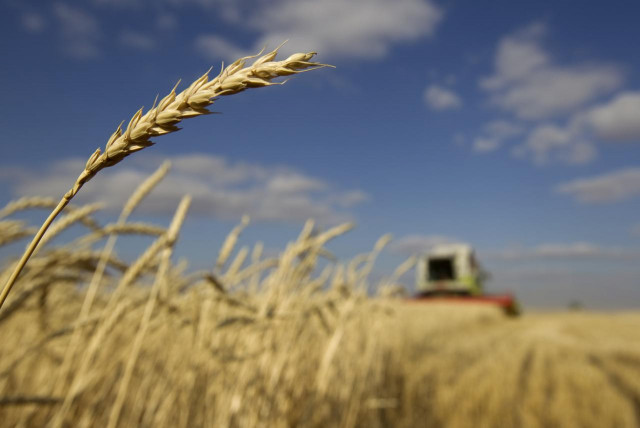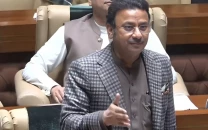Punjab, Sindh have enough ‘wheat reserves’
Senate panel informed ECC was asked to ban export of wheat thrice in June last year

A Reuters file photo
The Senate Standing Committee on Food Security and Research met with Senator Muzaffar Hussain Shah in the chair to discuss the recent flour crisis in the country and the smuggling of wheat.
The panel was informed that the prices of wheat started to rise in May last year and the authorities had asked the Economic Coordination Committee (ECC) of the Cabinet to ban its export thrice in June and convene a meeting of the National Price Monitoring Committee. However, the meeting was called after a delay of two and a half months.
The Federal Committee on Agriculture in its meeting held on October 11, 2018 had fixed wheat production at 25.51 million tonnes from an area of 8.83 million hectares.
However, at the final stages of crop maturity, heavy rainfall, hailstorm and wind lowered the production to 24.479 million tonnes, causing a production loss of around 5%.
The overall availability of wheat was at the level of 28.256 million tonnes, including leftover stock of 3.77 million tonnes against the national requirement of 26.91 million tonnes.
The current wheat stock of the public sector reportedly stands at 3.53 million tonnes.
Food Secretary Hashim Popalzai told the committee that the provincial food departments began their wheat procurement almost one and a half months late.
The ECC in its meetings held on April 8 and May 15 last year had approved the procurement targets of wheat for the provincial food departments from the Pakistan Agricultural Storage and Services Corporation (Passco) at 6.25 million tonnes. However, only 4.032 million tonnes were procured by the provinces, 35% less than the procurement target.
The ECC on November 20, 2018 had allowed the export of 0.5 million tonnes of wheat from the public sector and at that time, the stocks were at the level of around 10 million tonnes.
On the request of the provincial food departments to allow the export of three million tonnes of wheat, the ECC gave the nod to 0.5 million tonnes.
It was also decided that provincial governments would bear the complete costs of the exports. Passco successfully exported the allocated quantity of 0.1 million tonnes through the open tendering process at the rate of Rs32,759 per tonne against the reserved price of Rs32,500 per tonne.
However, the provincial food departments failed to export the wheat.
Similarly, the ECC in January last year allowed the export of an additional quantity of 0.5 million tonnes of surplus wheat on Passco’s earlier bidding.
At that time, the wheat stock with the public sector was 7.5 million tonnes. Against the allocated quantity of 0.5 million tonnes, Passco could only export a quantity of 0.063 million tonnes because of price difference in the international market.
The ECC imposed a ban on the export of wheat and flour on July 17 last year, on fine flour on October 25 and then on Suji and Maida on November 1.
On the request of the provincial governments to curb the rising prices, the ECC allowed the procurement of 1.10 million tonnes from Passco to the provincial governments.
The food secretary stressed the need for managing the wheat sent to Afghanistan if smuggling had to be curbed.
"We need to keep Afghanistan in mind," he added. “We must somehow set a target of six million tonnes of wheat for Afghanistan.”
The committee summoned representatives of the FIA and the Flour Mills Association to its next meeting.
It also sought a written response from the provinces about their existing wheat stocks



















COMMENTS
Comments are moderated and generally will be posted if they are on-topic and not abusive.
For more information, please see our Comments FAQ